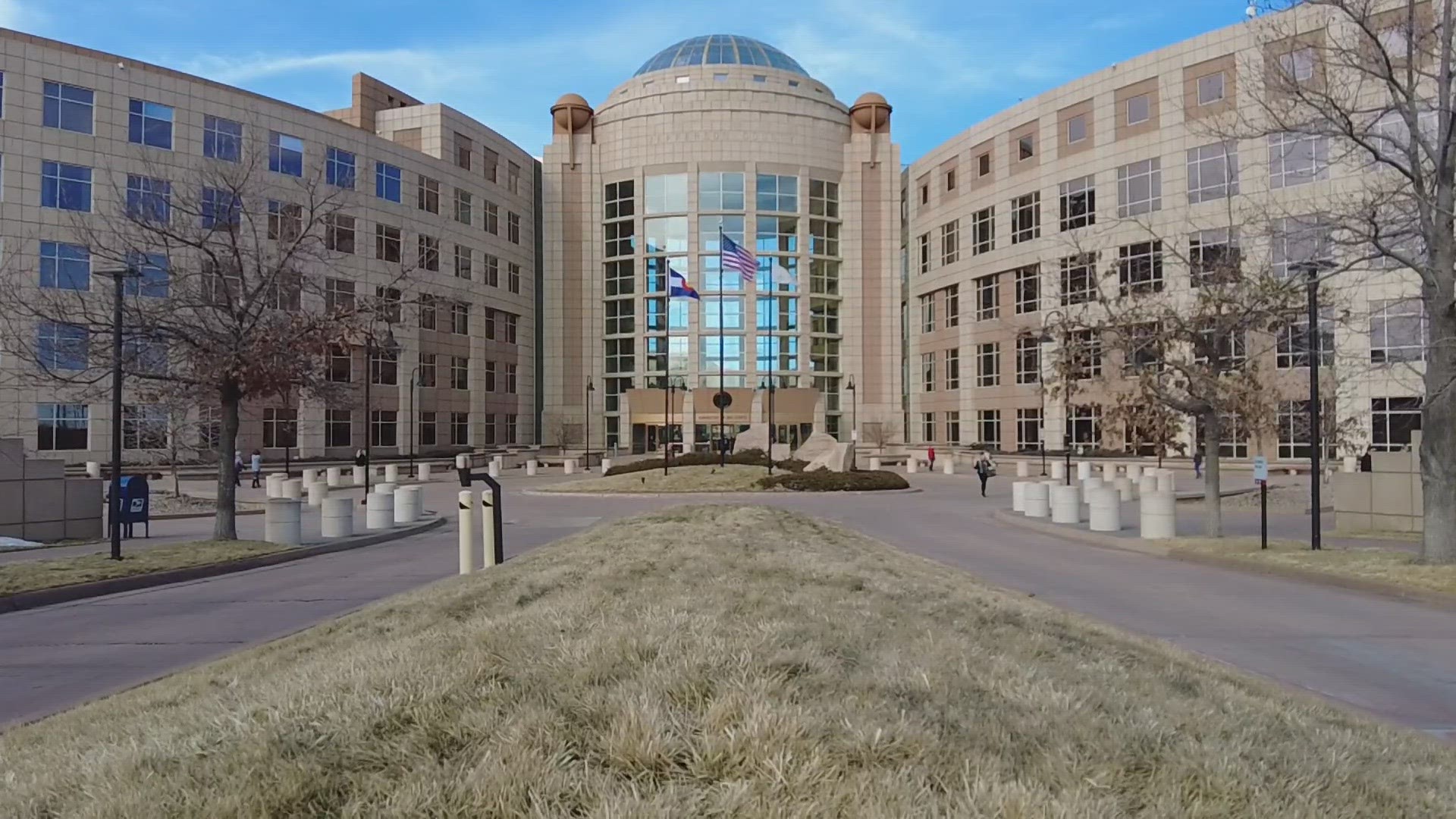JEFFERSON COUNTY, Colo. — People charged with crimes who have been deemed mentally incompetent sometimes wait months in jail for restoration services at the state hospital. The 1st Judicial District, which includes Jefferson and Gilpin counties, launched a program Wednesday to address this problem and move cases forward.
A criminal case comes to a halt in Colorado when a person has been found incompetent to proceed. The defendant must undergo restoration treatment, which can happen on an inpatient basis at a state hospital or out of custody.
As of Dec. 31, more than 350 people were waiting in jail for inpatient competency restoration treatment, according to the Colorado Department of Human Services. On average, individuals waited more than three months.
Competency Court programs like the one in the 1st Judicial District hope to address the number of defendants in need of competency-restoration services. The idea is to release some inmates from jail so they can get evaluations in the community, rather than wait behind bars for services.
Defendants who participate in Competency Court have been charged with lower-level felonies like assault and are not determined to be a danger to themselves or others.
On Wednesday in Jefferson County, a group of community providers, attorneys and a judge worked on a plan. If a defendant is released, they will be connected to wraparound services such as housing and transportation. The hope is this minimizes the wait for services at the state hospital if more people can get help out of custody.
Defendants in the program will have regular check-ins with the Competency Court to ensure their compliance.
Similar programs have started in other judicial districts in Colorado. Larimer County started the first competency court in 2021. From May 2021 to December 2022, the program helped 159 clients receive competency evaluations in the community, meaning they didn't have to wait in jail for the service.
The state human services department was sued in 2011 for failure to provide timely competency evaluations and restoration treatment. The department is currently under court oversight of a 2019 consent decree and is fined up to $12 million a year for noncompliance with the consent decree. The fines go into a fund to be distributed to programs aimed at eliminating the waitlist.
A quarterly status report in November, mandated by the consent decree, found after years of steady increases on the waitlist, there had been a plateau as staffing improved and additional hospital units opened. It meant more people on the waitlist could move to inpatient beds.
More 9NEWS stories by Kelly Reinke:
SUGGESTED VIDEOS: Investigations & Crime

